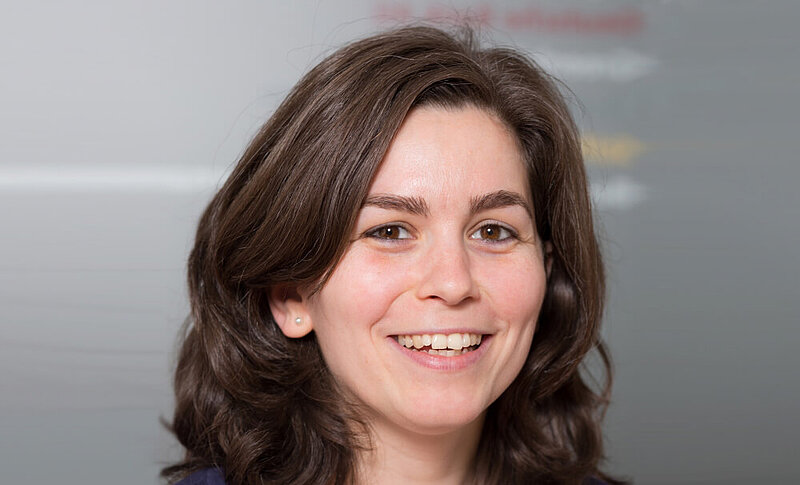
Alexandra Ioan’s journey from community organiser to research designer to system changer.
As a young girl growing up in Romania, Alexandra Ioan worked on an environmental protection project in her elementary school German class – “pretty revolutionary for Romania” back in the ‘90s, she says. This put her in touch with the idea of civic engagement for the first time at a young age. Through various extracurriculars in high school, she became more involved with civil society organizations. “I loved the atmosphere, the purpose,” she says. “Then later I was involved in youth development and intercultural dialogue – what I now understand as being projects around essential world problems.”
It was a two-year trek across Romania setting up community initiatives for a youth NGO – the New Horizons Foundation - that led her to study public policy and pursue a PhD at the Hertie School. “I realised that if we wanted all youth in Romania to have equal opportunities, we needed to change policy. I wanted to learn how that works, how NGOs advocate, and about the relationship between civil society and policymakers.”
A 2018 graduate of the Doctoral Programme in Governance, Ioan now heads a new European research centre for Ashoka, a global network that elects Fellows – social entrepreneurs – who have innovative approaches to big public problems and ultimately want to change how systems function. Using her expertise as a researcher, she has established the Learning and Action Center think tank to compile and analyse data on the experiences of Ashoka Fellows in Europe. The idea is to gather insights about their experiences that can be applied to outside organisations, entrepreneurs, NGOs, businesses or others. “I think a lot about how policymakers can use the experience and insights of these Fellows.”
Her PhD, Strategizing in highly institutionalized environments. Social Enterprises in Germany, explored the give-and-take between individuals, organisations and the institutional contexts in which they work. She joined the research team on the European Commission-funded SEFORIS project headed by her advisor, Professor for Organization, Strategy and Leadership Johanna Mair, examining how social enterprises can make societies more inclusive.
“Johanna Mair is a fabulous researcher, but she is also a fabulous practitioner. She knew I was very passionate about the practice side of things, so she always encouraged me to think in those terms,” says Ioan. “Some advisors expect if you do a PhD that you will stay in academia, but from day one, she told me: this will open up opportunities for you, it doesn't necessarily fix you on a path in academia. You can go into any sort of organisation afterwards with the insights that you've received. And she was totally, totally right.”
The structured Doctoral Programme is closely integrated into the Hertie School’s research structure. PhD researchers receive training in research design and methods and are linked to research colloquia where they work closely with faculty members. They can also be affiliated with one of the Hertie School’s Centres of Competence – research centres focusing on key policy challenges: digital governance, fundamental rights, international security, European governance, and in the future also sustainability.
Building on her previous studies at SNSPA, the University of Bucharest and in the MPP programme, Ioan says the PhD programme was “ in-depth, analytical, critical and thought-provoking. I was exposed to many new things, people, workshops and trainings, different situations, talks and events.” But it was the hands-on research experience with Johanna Mair and the SEFORIS team that set her on her ultimate career path. “I got to experience firsthand what it is like to conduct a research project in academia, and how it is to work in a big European consortium: How to collect data, how to clean it, how to make sure you use it and to consider what is expected in terms of outputs. What do academics expect? And how do we make it useful for the world?”
During this time she also had a research visit at the Stanford Center on Philanthropy and Civil Society at Stanford University, which she says helped underpin her understanding of research and different contexts. In her research, Ioan was especially fascinated by what individuals and organisations can achieve, given the constraints and opportunities in their environments.
“The German welfare sector is a strongly institutionalized context and the new social start-ups don't have so much power, so I used that in my dissertation to illustrate this dynamic between social actors and social contexts. The SEFORIS project in which I was working was essential because it exposed me to data collection and analysis in many different institutional settings.”
That experience was seminal in her decision to start up the Ashoka think tank after completing her doctoral work – but she says she hasn’t left academia forever. Ioan hopes to eventually do some teaching, for example offering her insights as a practitioner to MPP or EMPA students, or participating in a research consortium that includes academic institutions. “I see myself in this bridge role between research and practice, because I know both worlds.”
For now, she has some advice for PhD candidates getting through the stress of doctoral studies and the solitary task of dissertation writing: “Invest time in yourself, have a fun routine outside of the PhD programme, actively take breaks and don't feel guilty about it - everybody takes them and the dissertation will be completed regardless. And lastly, enjoy the learning process and think how it can contribute to the world - not just in terms of knowledge and publications, but rather in terms of how it can help our societies directly.”

